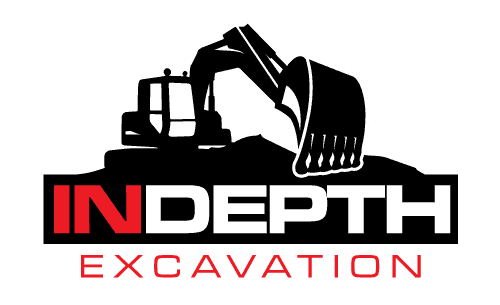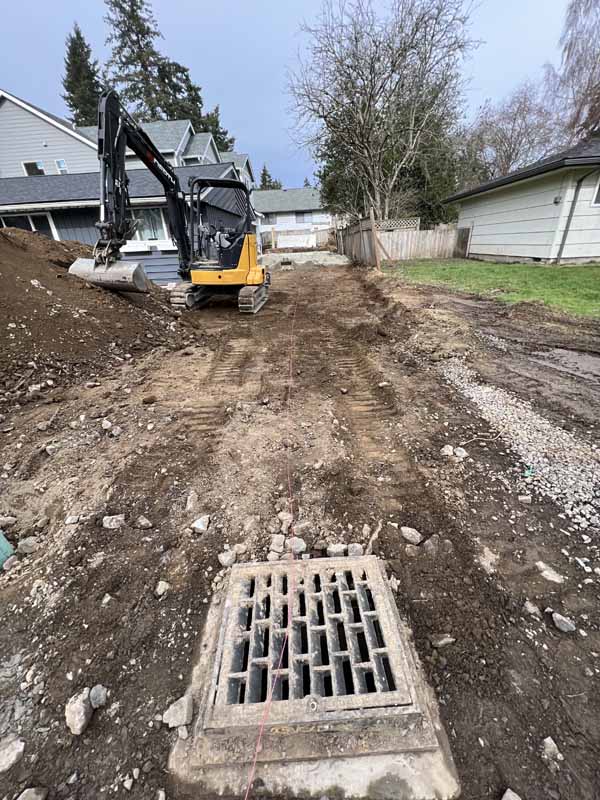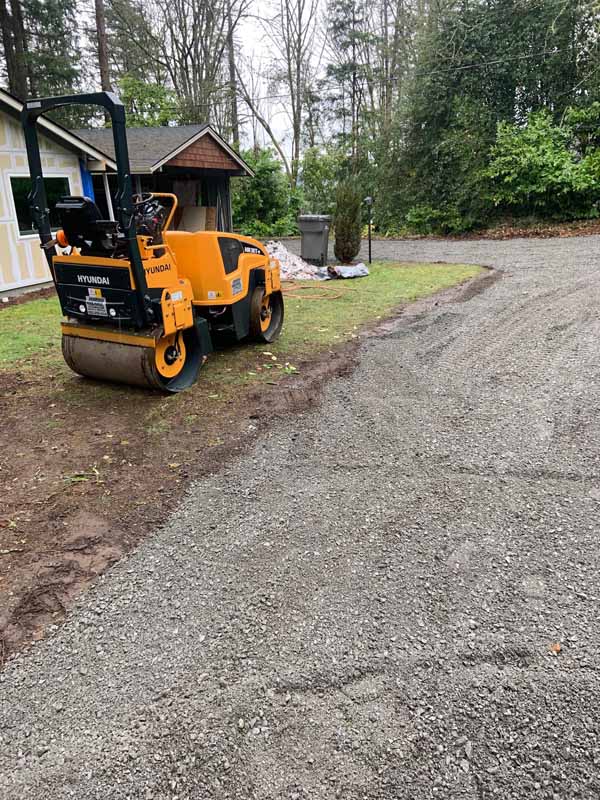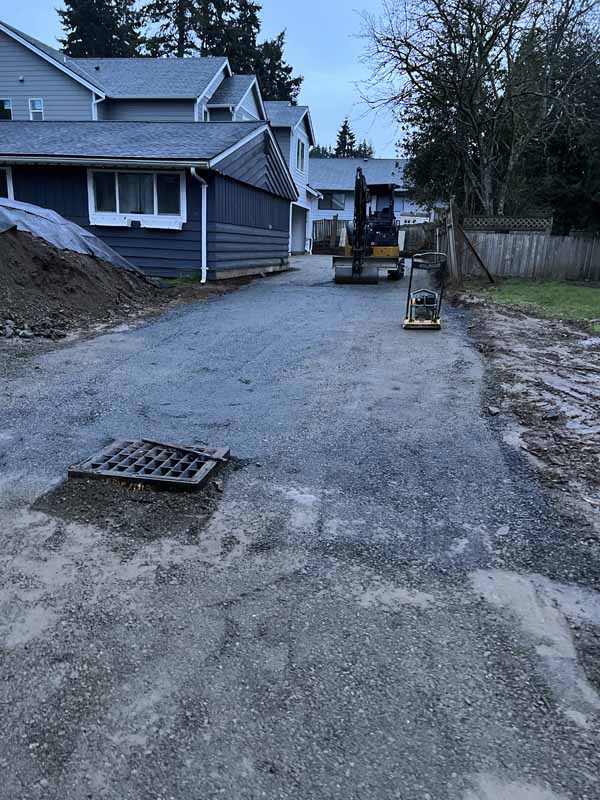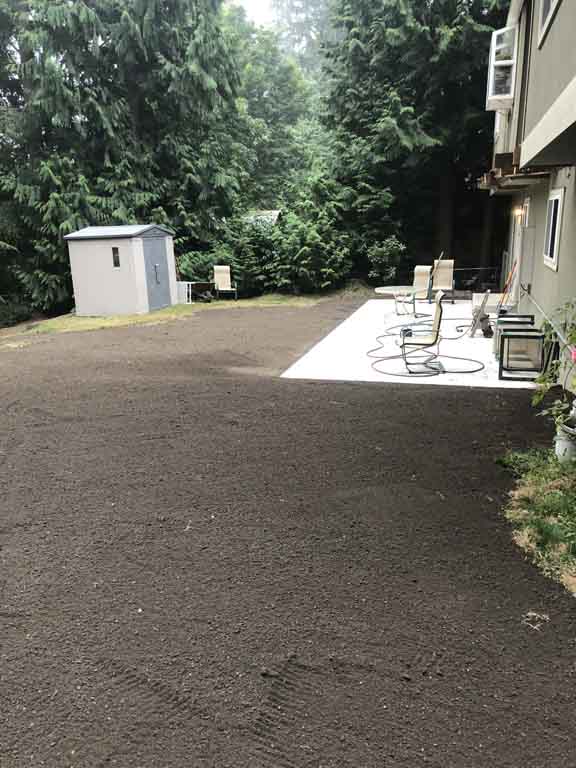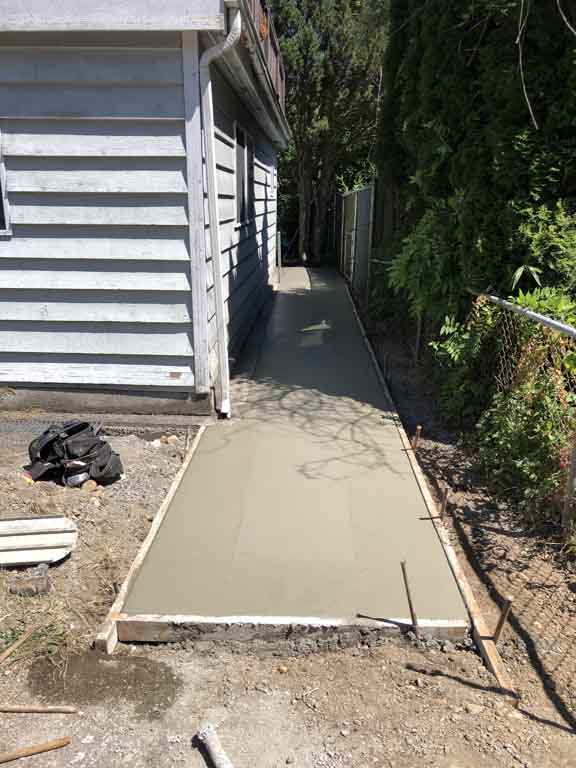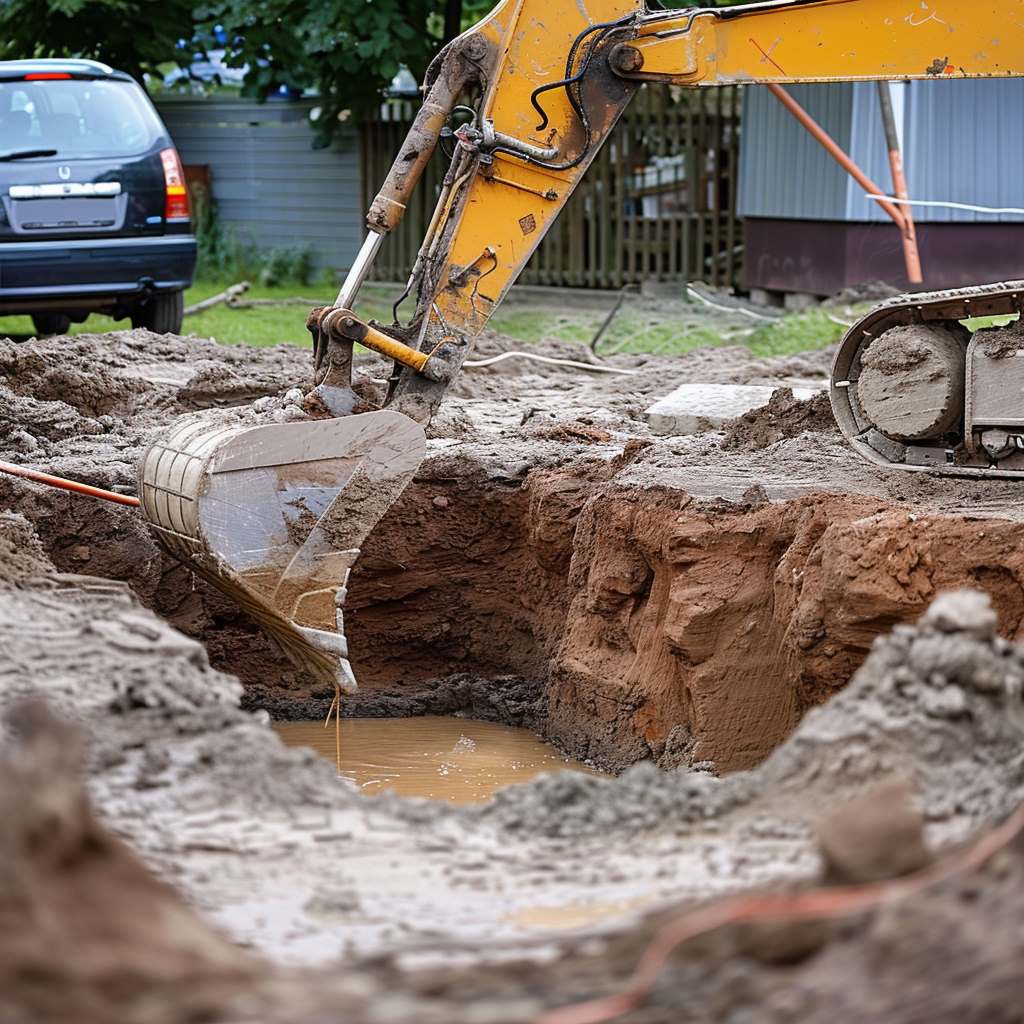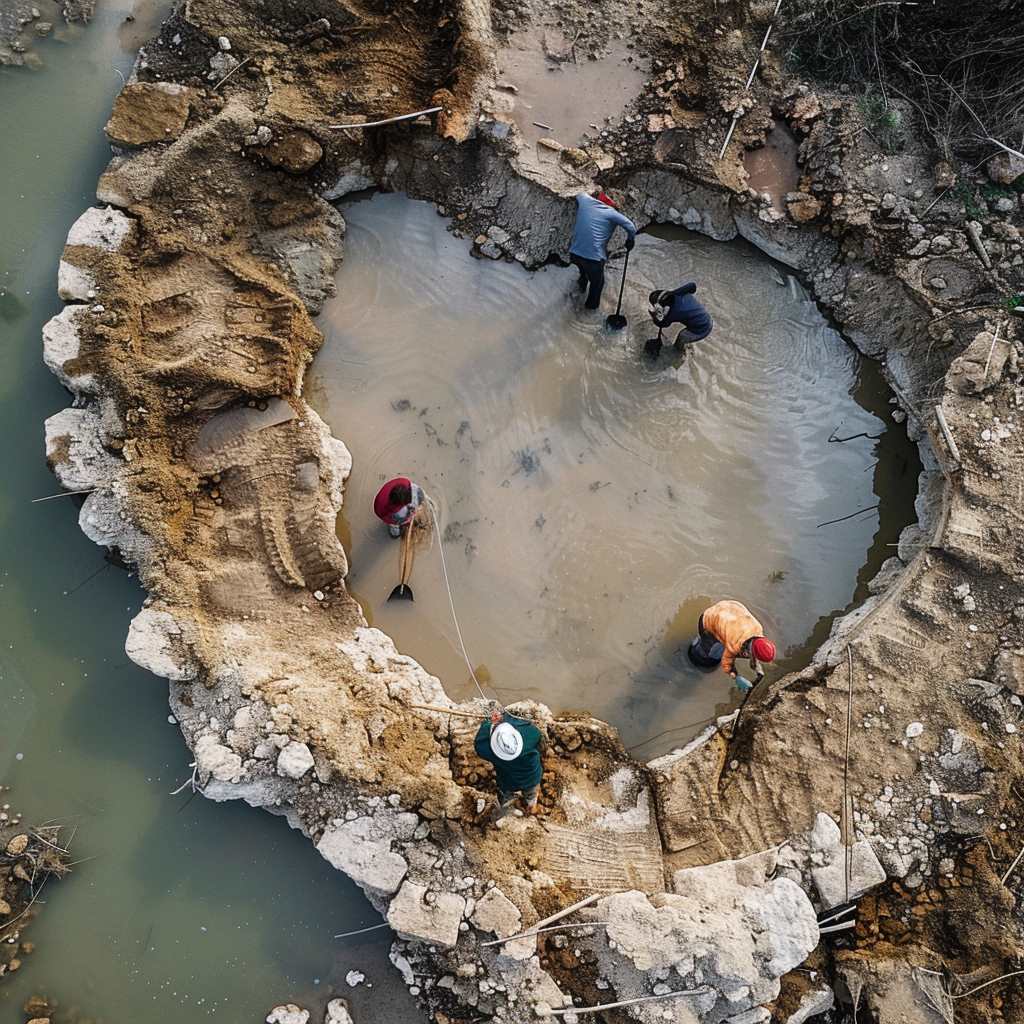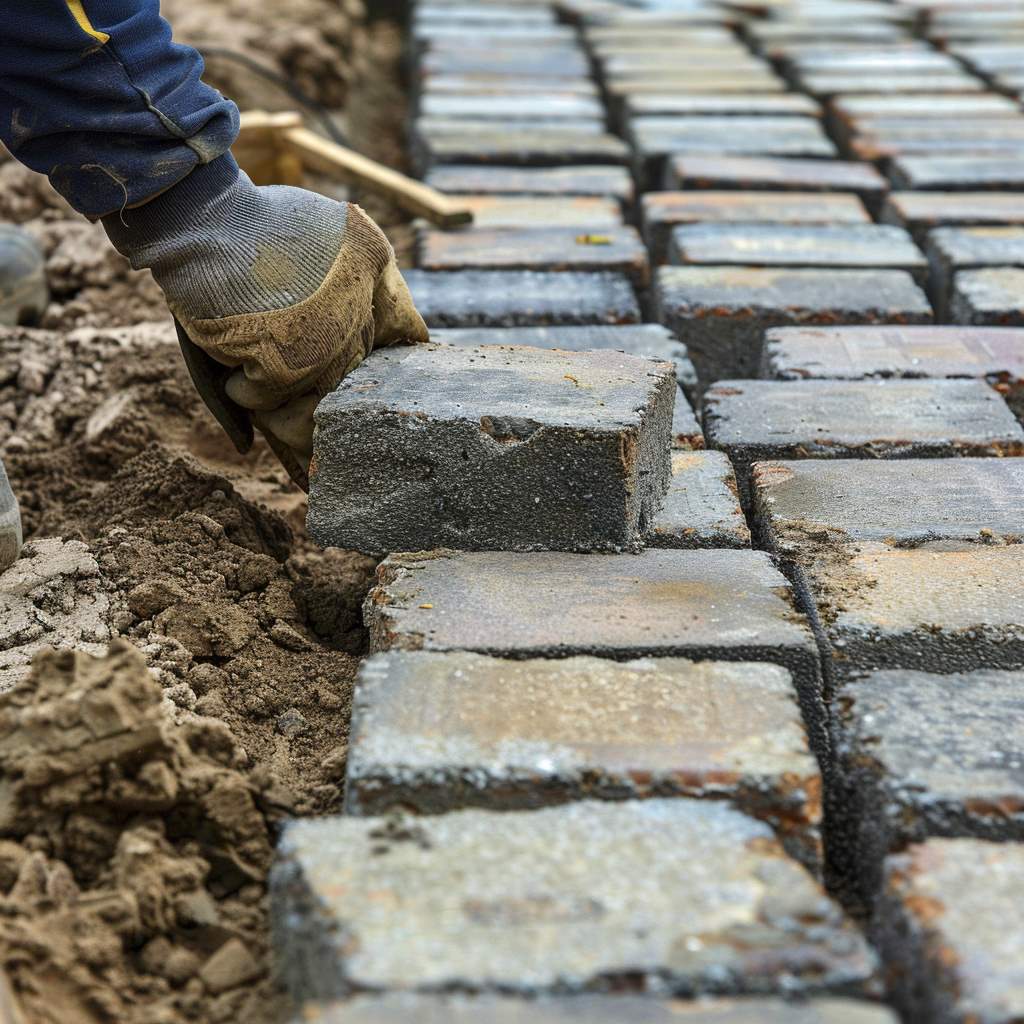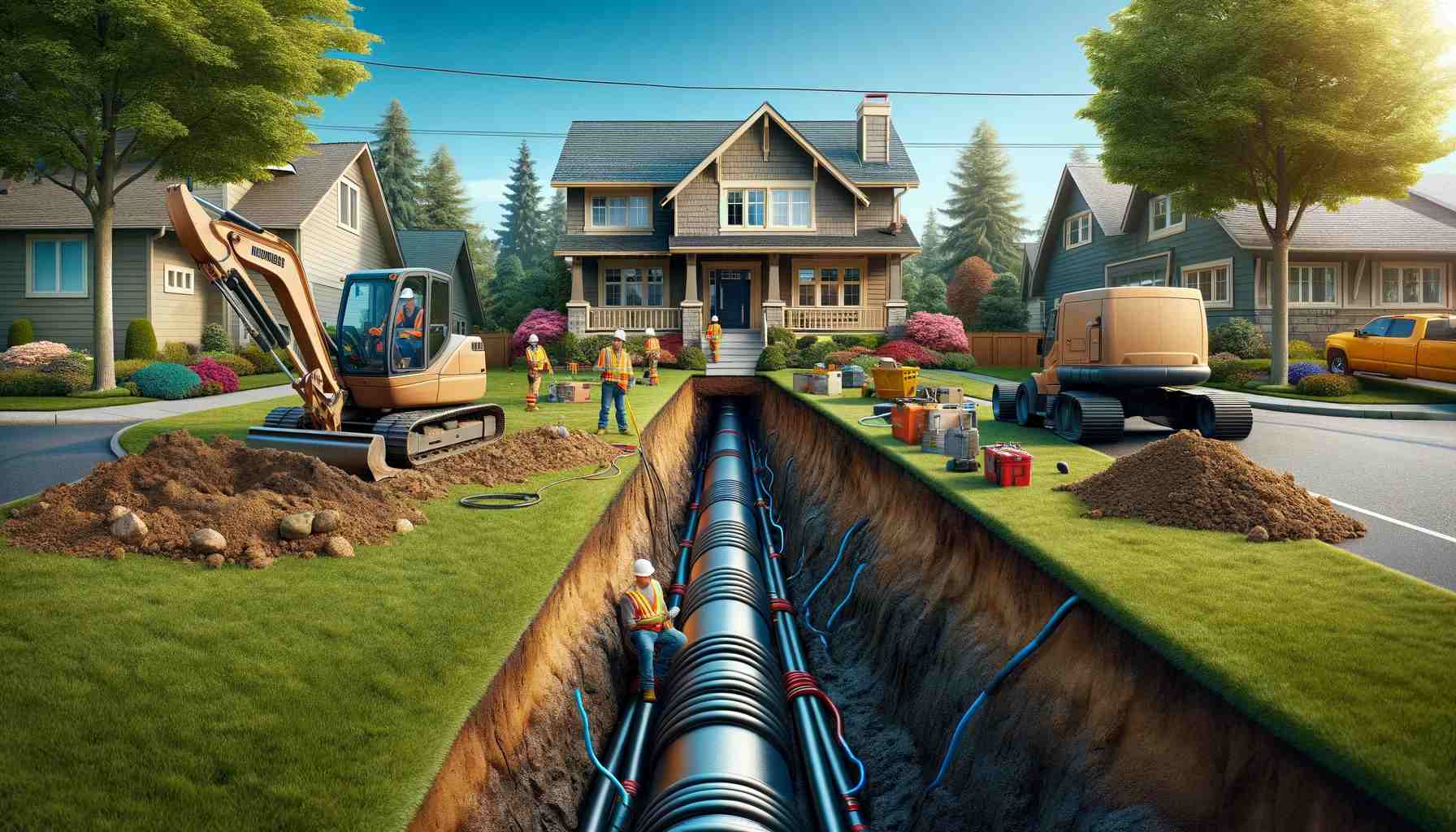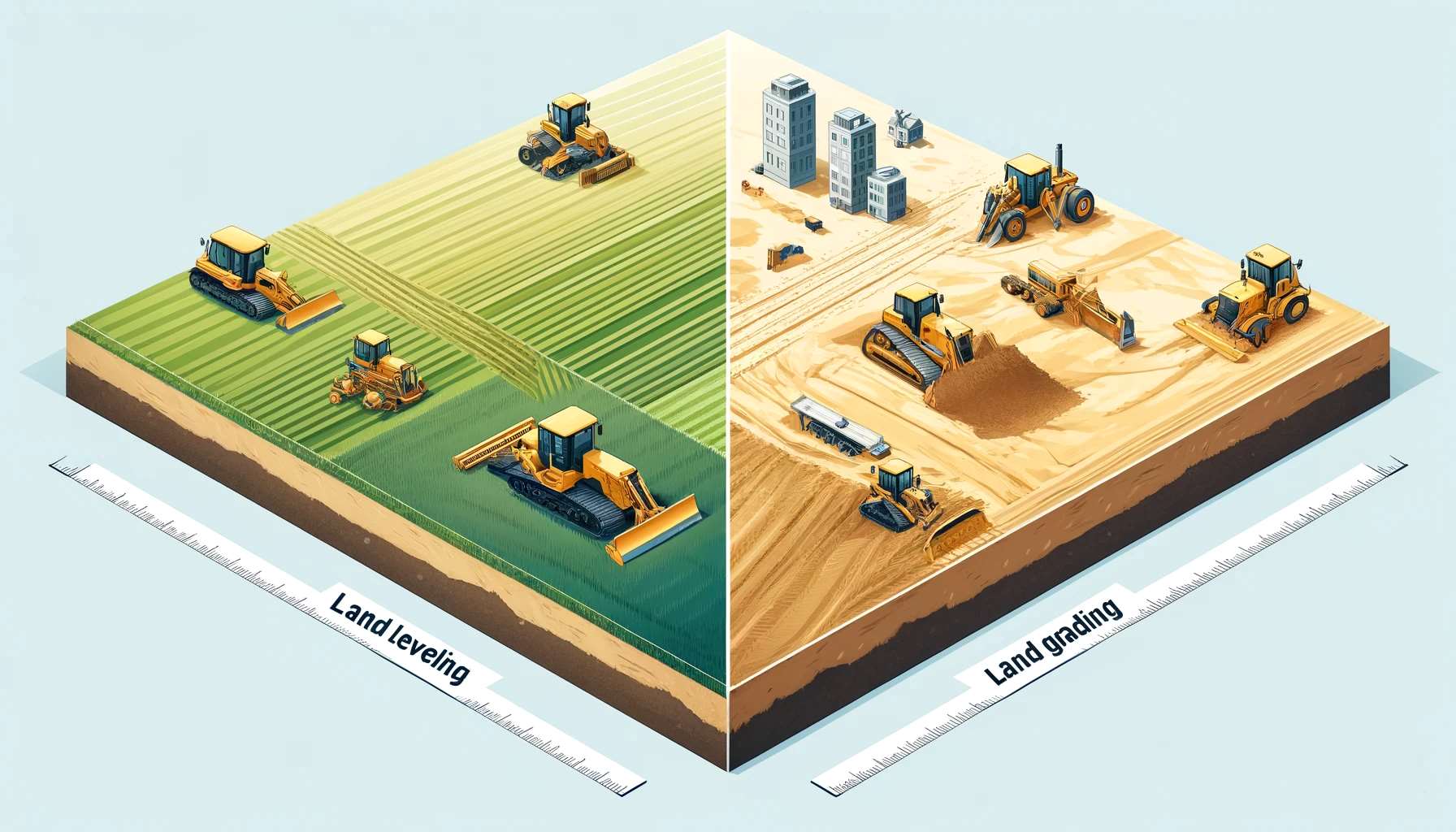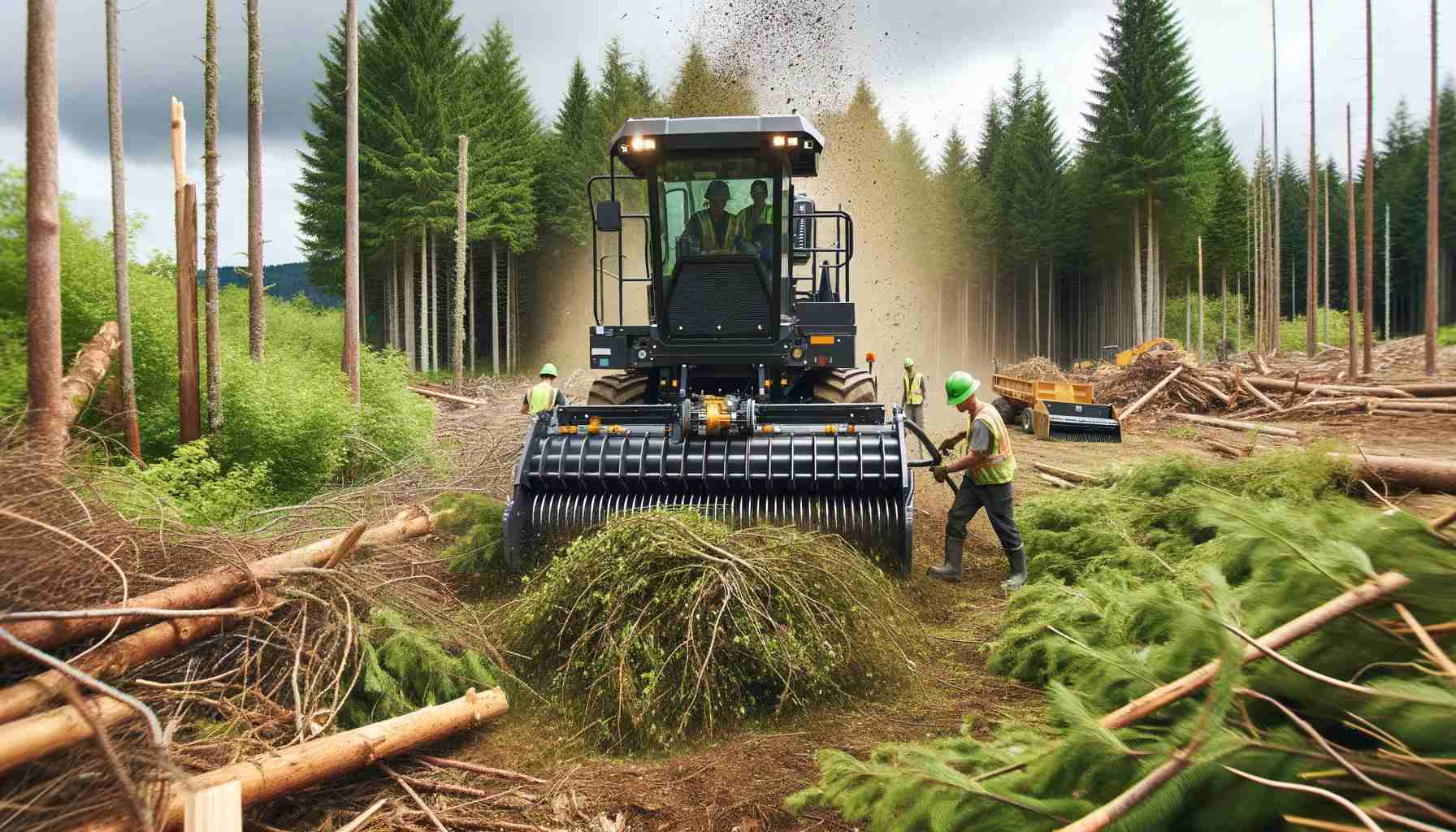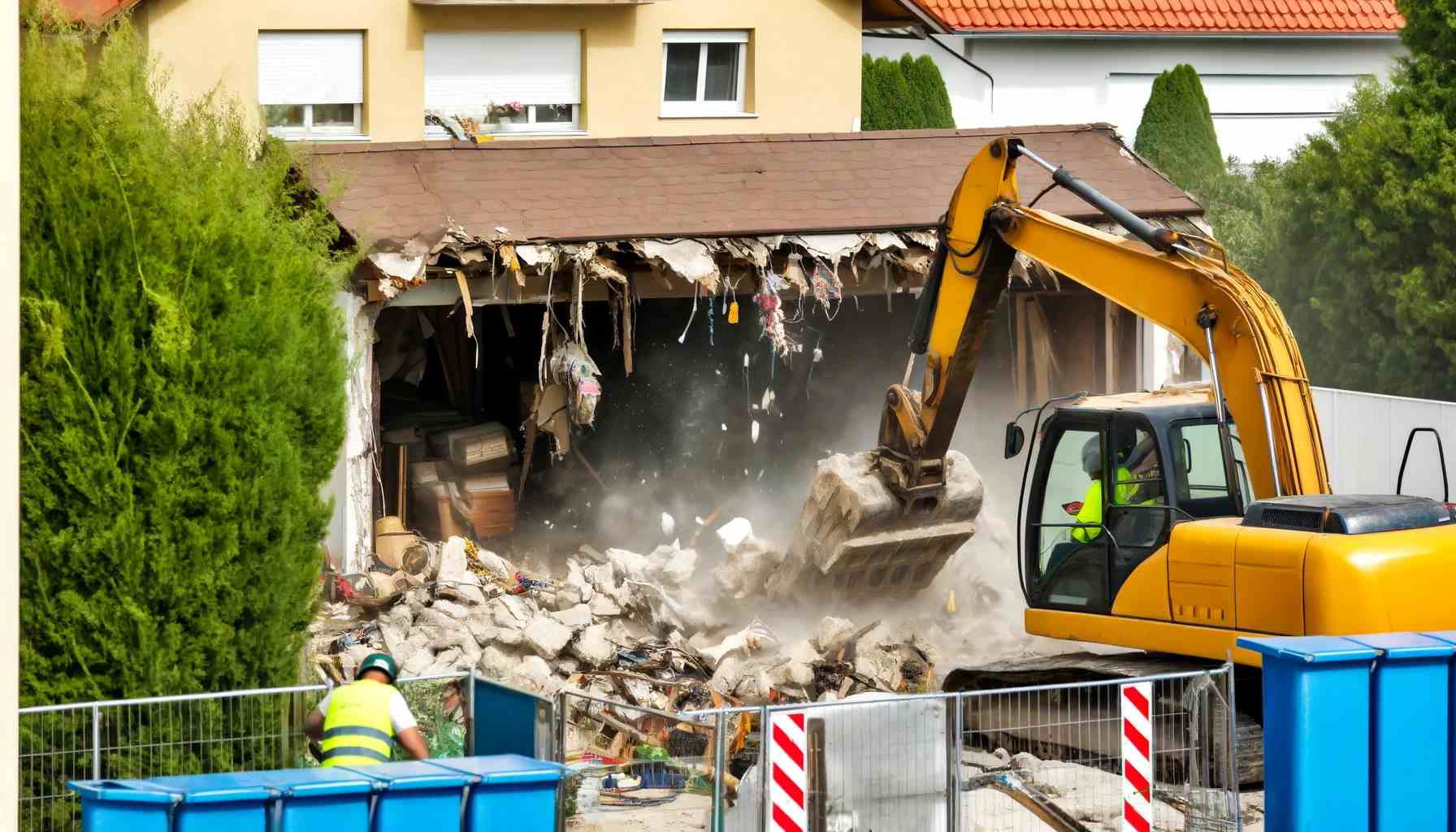Key Takeaways:
- Understanding the purpose and benefits of driveway excavation.
- Exploring various materials and methods for driveway construction.
- Gaining insight into the costs involved in driveway creation.
- Emphasizing the importance of safety precautions during excavation.
Purpose of Creating a New Driveway in Excavation
Creating a new driveway is more than just enhancing curb appeal; it’s about accessibility, functionality, and increasing property value. Excavation plays a crucial role in ensuring proper drainage and a stable foundation, which are key to the longevity and usability of the driveway.
Types of Materials to Create a Driveway
Several materials can be used for driveway construction, each offering unique benefits.
Options include:
- Asphalt: Asphalt, a mixture of bitumen (a sticky, black, and highly viscous liquid or semi-solid form of petroleum) and aggregate (like sand, gravel, or crushed stone), is a popular choice for driveways. It’s known for its durability, cost-effectiveness, and ability to withstand extreme temperatures. When constructing an asphalt driveway, the ground is first prepared and graded for proper drainage. Then, layers of gravel and crushed stone are laid down as a base before the hot asphalt mix is poured over it. Once the asphalt cools, it hardens and forms a strong, smooth surface. Asphalt is flexible, making it less susceptible to cracking in cold climates. It also requires periodic sealing to maintain its surface.
- Concrete: Concrete driveways are made from a mixture of cement, water, and aggregate. This material is known for its longevity, strength, and relatively low maintenance. During installation, the ground is prepared, forms are set to define the shape, and reinforcing steel bars (rebar) or wire mesh may be added for additional strength. Then, the concrete mix is poured, spread, and leveled. After the concrete sets, it undergoes a curing process to reach its full strength. Concrete can be finished in various textures and can even be stained or dyed for aesthetic appeal. It performs well in warm climates but can be susceptible to cracking with freeze-thaw cycles unless properly installed with expansion joints.
- Gravel: Gravel driveways are composed of loose aggregate with varying sizes of crushed stone, from fine particles to larger rocks. This material is one of the most affordable and easiest to install. The process involves grading the driveway area, laying down a weed barrier, and then spreading and compacting layers of gravel. Gravel driveways provide good drainage and are easy to repair by simply adding more gravel. However, they can require more maintenance in terms of raking and replenishing the gravel periodically. They may not be as durable as asphalt or concrete and can be prone to ruts and spreading.
- Pavers: Driveway pavers are individual paving stones made from concrete, brick, or natural stone. They are known for their aesthetic appeal, offering a range of colors, shapes, and patterns. The installation of pavers involves preparing a solid base, usually consisting of several layers of material such as gravel and sand, to ensure stability and proper drainage. The pavers are then laid in the desired pattern and gaps are filled with sand. Pavers have the advantage of being easy to repair — individual pavers can be replaced if they are damaged. They also provide a permeable surface, which can be beneficial for drainage. However, pavers can be more expensive than other driveway materials and require a meticulous installation process.
Different Methods of How to Create a Driveway
Driveway construction begins with planning and excavation.
This involves:
Removing Topsoil:
- Purpose: The top layer of soil, known as topsoil, is often rich in organic matter and can retain moisture, leading to instability. Removing it helps to prevent shifting and sinking of the driveway over time.
- Process: This involves digging out the topsoil to reach a more stable, subsoil layer. The depth of removal can vary but is typically around 7-12 inches, depending on the soil type and the planned thickness of the driveway material.
Leveling the Ground:
- Purpose: Leveling creates a flat, even surface, which is crucial for a stable and durable driveway.
- Process: Once the topsoil is removed, the ground is leveled using graders or other landscaping equipment. This step also includes grading the driveway area for proper drainage, usually with a slight slope away from buildings to prevent water pooling.
Preparing a Base:
- For Asphalt Driveways:
- Base Material: The base typically consists of crushed stone or gravel.
- Process: The base material is laid over the leveled ground and then compacted using a roller or compactor. This base provides a stable, well-drained foundation for the asphalt.
- Asphalt Application: Hot asphalt is poured over the prepared base and then spread and smoothed out. It is then compacted to create a dense, durable surface.
- Curing Time: Asphalt needs time to harden and cure, which can take several days depending on weather conditions.
- For Paver Driveways:
- Base Material: The base usually involves several layers, including a layer of crushed stone followed by a layer of finer gravel or sand.
- Process: After the crushed stone layer is compacted, a layer of sand is laid and leveled to provide a bedding for the pavers. This sand layer helps in adjusting the pavers and locking them in place.
- Laying Pavers: Pavers are then placed in the desired pattern on top of the sand layer. The gaps between pavers are filled with sand to secure them in place.
- Edging: Paver driveways often require some form of edging or restraint around the perimeter to prevent the pavers from shifting.
- For Asphalt Driveways:
Each of these construction methods requires careful planning and execution to ensure a long-lasting and functional driveway. The material choice (asphalt vs pavers) significantly influences the specific techniques and tools used in the construction process.
What Are the General Costs of Creating a Driveway
The cost of creating a driveway varies widely based on the size, material, and labor involved. Generally, gravel [$1-$3 per square ft] driveways are the most cost-effective, while concrete [$4.25 – $6.25 per square ft] and asphalt [$7-$13 per square ft] are more expensive but offer longevity and less maintenance.
Labor and size is of course going to be a key factor. It’s best to get a quote, just so happens we do free quotes!
Safety Precautions for Creating a Driveway
Safety is paramount in driveway excavation. This includes ensuring proper equipment handling, wearing protective gear, and being aware of underground utilities. Professional services like In-Depth Excavation prioritize safety to prevent accidents and ensure compliance with local regulations.
Conclusion:
Constructing a driveway is a significant project that requires careful planning, selection of appropriate materials, and understanding of costs involved. With safety as a top priority, In-Depth Excavation’s expertise ensures a smooth, efficient, and successful driveway construction, living up to our motto, “Your Hole is Our Goal.” Whether it’s a new installation, repair, or replacement, our team is equipped to handle all aspects of driveway excavation and construction, delivering results that not only meet but exceed expectations.
In-Depth Excavation Comprehensive Services
At In-Depth Excavation, our expertise extends far beyond air excavation. We offer a full suite of services to meet all your excavation and construction needs, ensuring each project is handled with the utmost professionalism and skill. Here’s an overview of the services we proudly provide:
- Excavation Services: Our team specializes in a wide array of excavation services including digging, trenching, shoring, foundation work, and site preparation. Whether it’s for residential, commercial, or industrial projects, we have the experience and equipment to handle all types of excavation work.
- Demolition Services: From dismantling structures to site remediation, our demolition services cover all aspects of breaking down and removing old buildings and structures. Our approach prioritizes safety and efficiency, ensuring a smooth transition for your construction projects.
- Driveway Services: We offer comprehensive driveway solutions, including installation, repair, resurfacing, and replacement. Whether you prefer asphalt, gravel, or concrete driveways, our team can deliver top-quality workmanship tailored to your property’s needs.
- Land Clearing and Grading Services: Preparing your land for construction is crucial. Our land clearing and grading services involve everything from brush and tree removal to earth moving and site leveling, ensuring your land is perfectly prepped for its next phase.
- Side Sewers & Storm Drains: Our expertise also extends to the installation and repair of side sewers and storm drains. We understand the importance of proper drainage solutions, and our team is equipped to provide reliable and efficient installations.
At In-Depth Excavation, we believe in a customer-focused approach, where your satisfaction is our top priority. Our team, with over 60 years of combined experience, utilizes the latest technology and equipment to ensure high-quality results. We are proud to serve King County, Snohomish County, and Skagit County, bringing our expertise directly to your project site.
Whether you require air excavation for a delicate project or a full-scale demolition and land clearing operation, In-Depth Excavation is your go-to partner. Trust us to bring our best to every job, with a commitment to professionalism, responsiveness, and unmatched customer service.
Contact Us Today!
Ready to start your project with a team you can trust? Contact In-Depth Excavation at info@indepthex.com or visit us at our office in Monroe, WA. We’re here to turn your project visions into reality!
FAQ: How to Create a Driveway in Excavation
Excavation is crucial for driveway construction as it ensures a solid foundation, proper leveling, and effective drainage. This process helps in preventing future issues such as cracking, sinking, or water pooling on the driveway.
Popular materials for driveways include asphalt, concrete, gravel, and pavers. The choice depends on factors like budget, maintenance requirements, climate, and the desired aesthetic.
The time frame for constructing a driveway varies depending on its size, material, and complexity of the project. Simple gravel driveways can be completed quickly, while concrete or asphalt driveways may take several days to allow for curing and setting.
Costs vary widely based on materials, size, and labor. Gravel driveways are generally more affordable, while concrete and asphalt are pricier but offer more durability. A detailed quote can be provided after assessing the specific requirements of the project.
Maintenance varies by material. Asphalt may require seal coating every few years, while concrete should be cleaned and checked for cracks regularly. Gravel driveways need occasional leveling and replenishment of gravel.
- Yes, environmental considerations include preventing runoff, choosing eco-friendly materials, and ensuring proper disposal of construction waste. In-Depth Excavation adheres to environmentally responsible practices in all projects.
